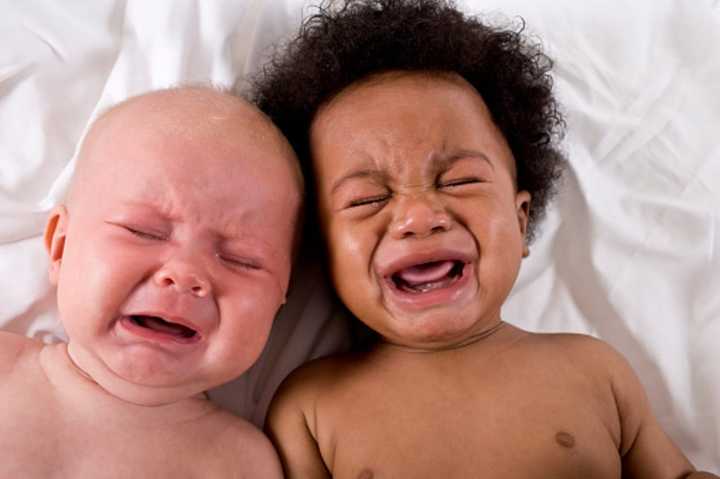Newborns routinely cry a total of 1-4 hours a day. Crying spells often peak at about 6-8 weeks and then gradually decrease.
Reasons babies cry:
- Hungry
- Tired
- Need a diaper change
- Want to be held
- Too cold/too warm
- Overtired/overstimulated
- Sick
- Helps them de-stress
- Sometimes they don’t know why they cry
Is it colic?
Colic usually follows the rules of 3s:
- starts around 3 weeks of age and lasts until 3 months of age
- crying 3 or more hours a day, 3 or more days a week, for 3 or more weeks, in an otherwise healthy infant
Crying associated with colic often happens at night. We’ve written a blog explaining how to deal with colic, which you can read here.
Should you let your baby cry?
Often, parents are afraid that if they respond to their baby every time he/she cries, they will spoil them. This is not true—babies need the reassurance and will cry less overall in the future. What you don’t want to do is feed your baby every time he/she cries. If you do, not only can you overfeed your child but also get him/her used to the idea that when they cry, they get fed.
Best ways to sooth a crying baby
- Skin to skin contact
- Singing/dancing
- Rocking
- Swaddling
- Shushing/white noise
- Playing music
- Burping your baby, as he/she may have gas
- Vibration
- Riding in a car
Caring for a new baby can be overwhelming, so try to get some help
Part of being a good parent is being aware of your limits. If there is no one available to help you, put your baby down in a safe place—like a crib or car seat—and go call someone, get something to eat, and just breathe for a few minutes. When you return, your child may still be crying, may not be crying, or may have fallen asleep, but hopefully you’ll feel a little calmer and better able to deal with the crying.
Babies are like sponges
They absorb the energy of their surroundings, so when you’ve had a bad day, or are mad or sad, often your baby is more cranky and cries more. He/she is wondering what is going on and they cry in response. On those days, your baby may need more reassurance.
Don’t forget to take of yourself, too
Especially with a newborn, self-care is crucial. Eat nutritious meals, try to get enough sleep, and pamper yourself if possible (sometimes just a hot bath helps). It’s true: the better you take care of yourself, the better you can take care of your baby.
EVEN IF YOU FEEL LIKE YOU’RE AT THE END OF YOUR ROPE, NEVER SHAKE YOUR BABY
No matter how frustrated or angry you might become, A BABY SHOULD NEVER BE SHAKEN. This can cause blindness, brain damage and even death. If your baby won’t stop crying, do what we suggested above: place him/her in a safe place, go in another room for a few minutes, get a snack, call a friend.
If you are still feeling overwhelmed, please get help from your pediatrician, a counseling center or a mental health professional. We have found this website to be helpful: Fussy Baby Site.
